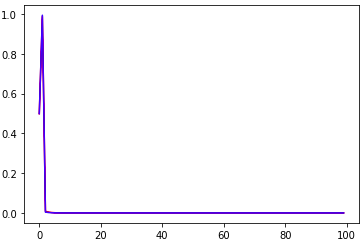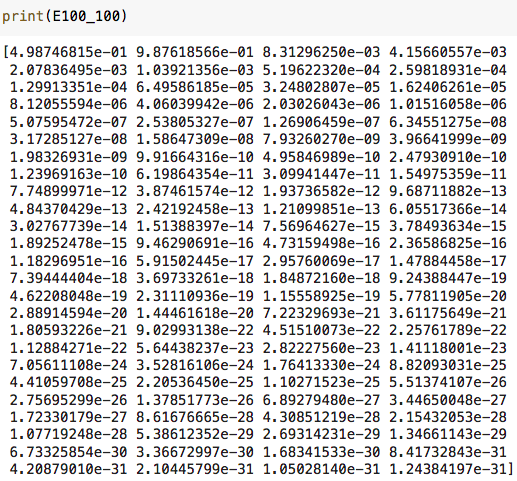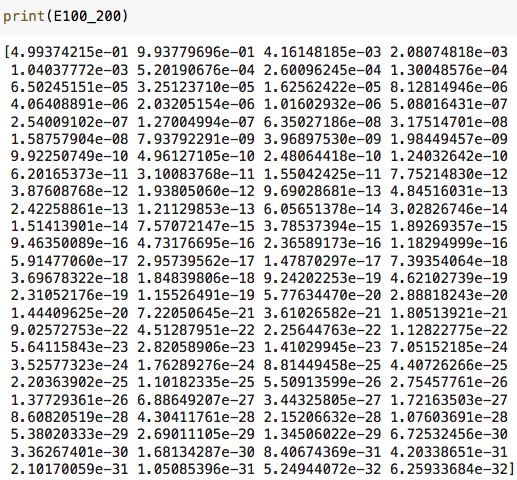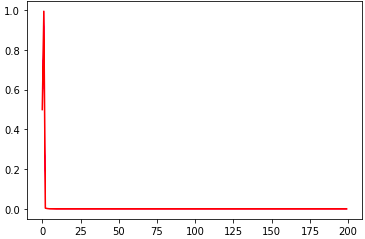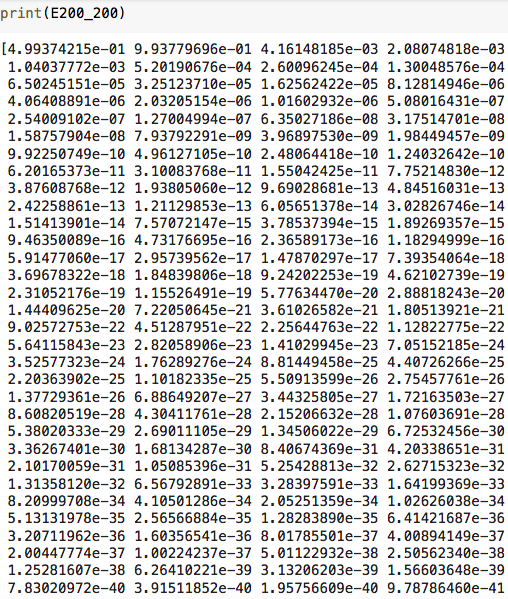I am looking for the condition/criterion that yields the convergence of right-continuous martingales, motivated by the following question.
For $M,N\ge 1$, set $I_M:=\{t_m\equiv m/M: 0\le m\le M\}$ and $J_N:=\{x_n\equiv n/N: -N\le n\le N\}$. We define a discrete Markov martingale $(X^{M,N}_{t_m}: 0\le m\le M)$ taking values in $J_N$ :
(1) $X^{M,N}_0=0$ and $X^{M,N}_1\in\{1,-1\};$
(2) Let us specify the transition probabilities
$$p_{m}(x_i,x_j):=\mathbb P[X^{M,N}_{t_{m+1}}=x_j|X^{M,N}_{t_m}=x_i],\quad 0\le m\le M-1,~ -N\le i,j\le N.$$
For $m=M-1$, (1) implies $p_{{M-1}}(x_i,\pm 1)= (N\pm i)/2N$. The entropy of the probability $p_{M-1}(x_i, \cdot)$ is defined by
$$E_{M-1}(x_i):=-\frac{N-i}{2N}\log\left(\frac{N-i}{2N}\right)-\frac{N+i}{2N}\log\left(\frac{N+i}{2N}\right).$$
We proceed backward. Provided the entropy $E_{m}$, we define the probabilities $p_{m-1}(x_n,\cdot)$ for $-N\le n\le N$. Let $p_{m-1}(x_n,\cdot)\equiv (p_{m-1}(x_n,x_j): -N\le j\le N)$ be the optimizer that maximizes the accumulated entropies:
\begin{eqnarray} && p_{m-1}(x_n,\cdot):= {\rm argmax}_{(q_{-N},\ldots, q_N)\in\mathbb R^{2N+1}_+} \left\{-\sum_{j=-N}^Nq_j\log(q_j) + \sum_{j=-N}^Nq_jE_{m}(x_j)\right\}, \\ \mbox{s.t.} && \sum_{j=-N}^N q_j=1 \quad \mbox{and}\quad \sum_{j=-N}^N x_jq_j=x_n. \end{eqnarray}
Then the entropy $E_{m-1}$ is defined by $E_{m-1}(x_n):=\sum_{j=-N}^N-\log\big(p_{m-1}(x_n,x_j)\big)p_{m-1}(x_n,x_j)$ for $-N\le n\le N$.
Obviously the martingale is determined by (1) and (2). It appears that the martingale maximizes the "accumulated entropy" and is thus the "most random martingale". Finally we define a continuous-time martingale $X^{M,N}\equiv (X^{M,N}_t: 0\le t\le 1)$ by setting $X^{M,N}_t:=X^{M,N}_{t_m}$ whenever $t\in [t_m, t_{m+1})$. I have two questions :
- Does $X^{M,N}$ converge as $M,N\to\infty$ in a suitable way?
- Is there any chance that the limit is a continuous martingale?

